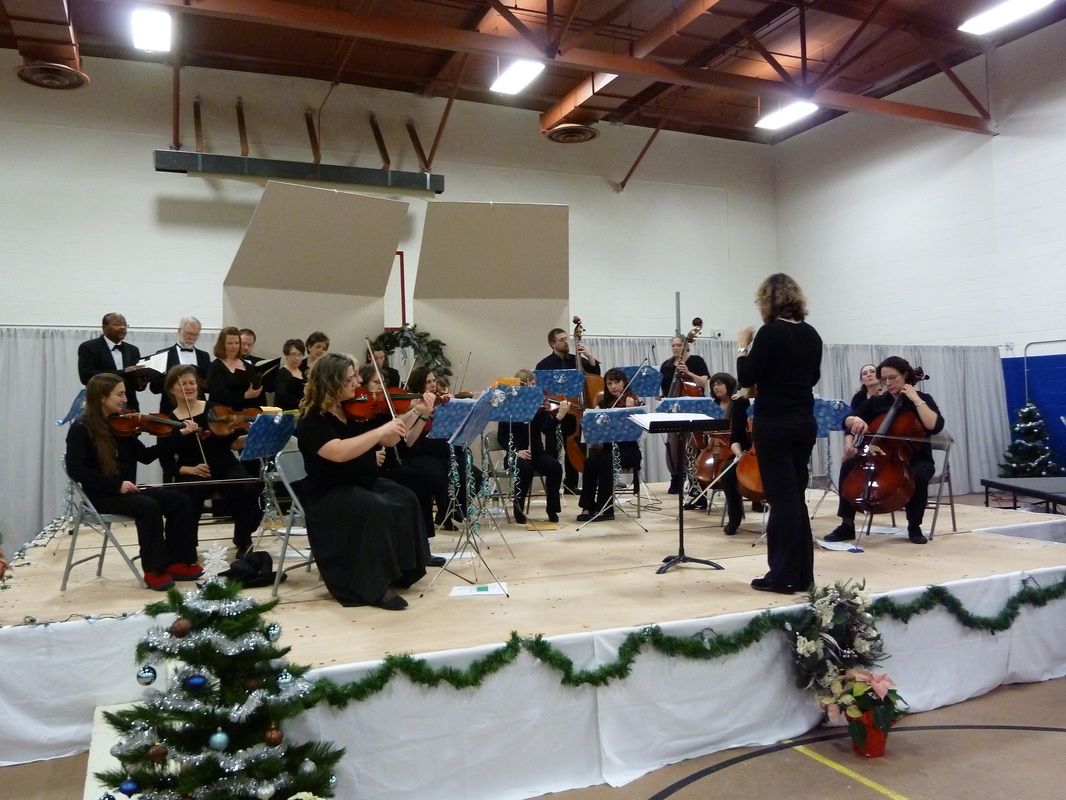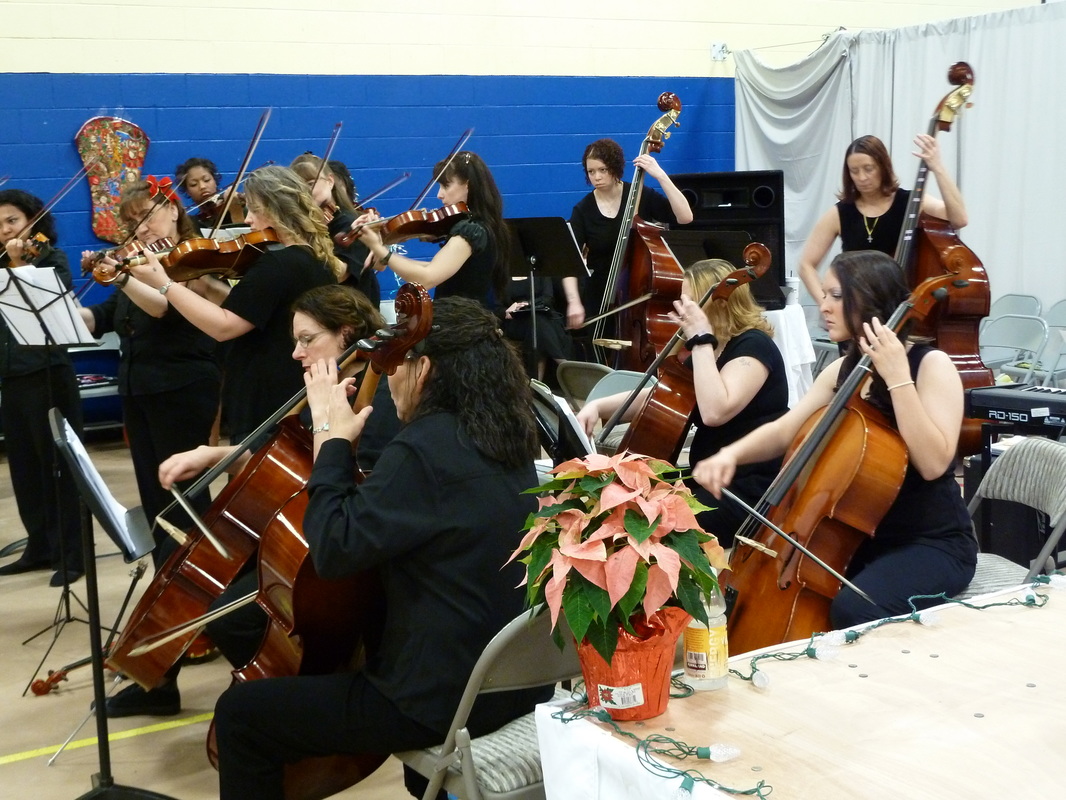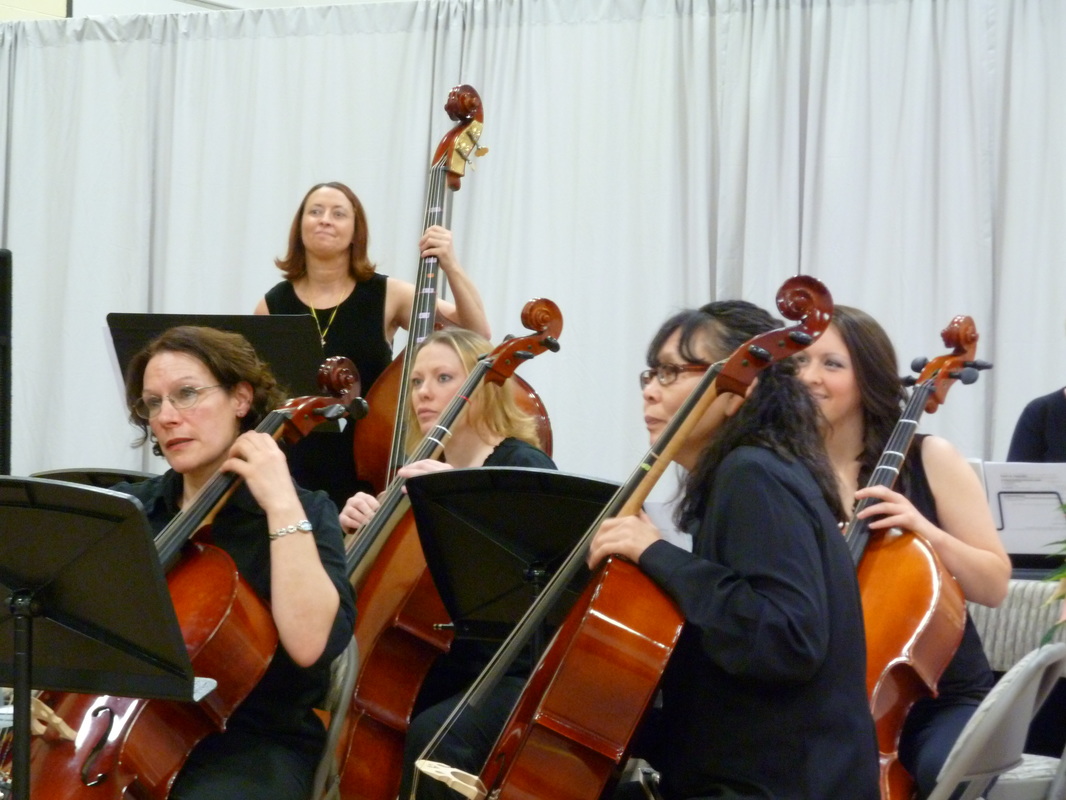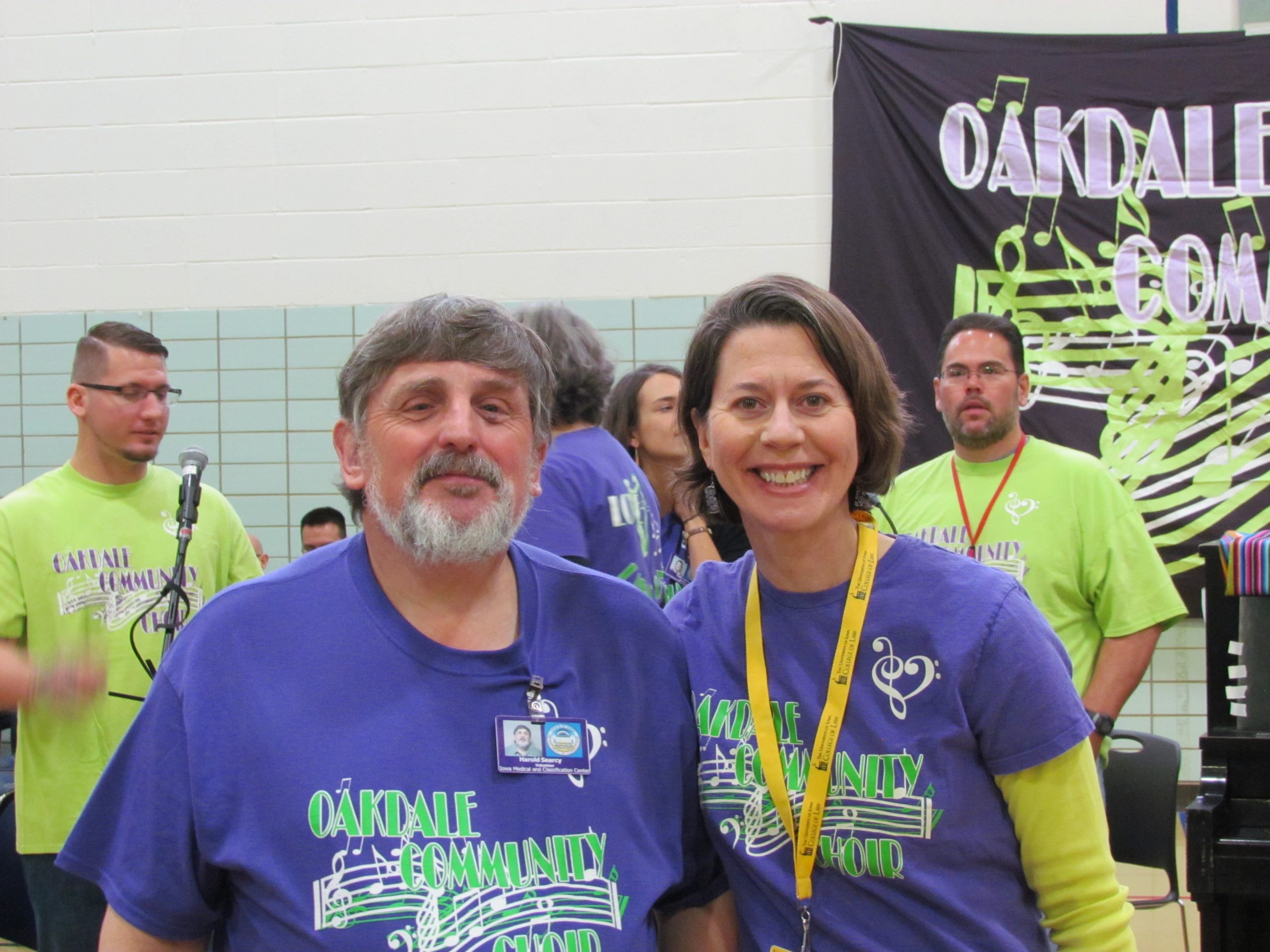Although the “power of love is a curious thing,” as Huey Lewis first sang in 1985, the power of music is not curious at all. Music serves as much more than just a way to help school-age children be part of a team and improve their math skills, although both are great benefits. And music certainly serves a greater purpose than being a fun outlet for weekend warriors.
When one thinks of the connection between music and prison, classic songs like Johnny Cash’s “Folsom Prison Blues” or Elvis Presley’s “Jailhouse Rock” may come to mind. But the connection runs deeper … much deeper. Music has magical powers. Think that’s a big stretch to say? This magic can be seen in music’s tremendous reformative powers for those currently in prison, those formerly incarcerated and perhaps even those who may commit future crimes. A fantastic example can be found today at the Iowa Medical Classification Center Correctional Facility, a large, medium-security prison in Coralville, Iowa, where the Oakdale Community Choir performs. Leading this prison program is Dr. Mary Cohen, associate professor and area head, music education, School of Music, College of Liberal Arts & Sciences Dean Scholar, University of Iowa.
“We aim to transform the broader public’s view toward more healing ways of dealing with conflict management, and to address the many injustices of the U.S. prison system,” Dr. Cohen told the Music & Sound Retailer.
For two hours on Tuesday nights, the choir, featuring “outside singers” who are non-incarcerated volunteers and “inside singers” who are incarcerated, perform original songs, as well as popular hits like Michael Jackson’s “Man in the Mirror,” in what many consider a life-altering experience. Musical instruments are played as well.
“In the choir, you are not viewed as an offender, you are viewed as a person,” one inmate stated in a broadcast filmed by Iowa Public Television. “If you walked by, you wouldn’t know which ones of us are incarcerated and which ones of us are leaving in a few hours,” added another inmate.
“I knew I had a life sentence and I could either spend the rest of my life in lockup, in a cell, as an animal, or I could attempt to try to get my mind right,” inside singer, Bruce Pollard, said during the PBS video. “I came with an open mind, and I wrote maybe 13 songs that allowed me to be part of something good connected to the outside world, and also connected to the inside.”
“When you see the choir and see how open it is, you start to feel human again,” added inside singer Michael Blackwell Sr. “This is the first prison I have been in where there is more positive than negative.”
And stated Jim McKinney, warden, Iowa Medical and Classification Center, “For two hours on a Tuesday night, nobody thinks they are in prison.”
Dr. Cohen originally lived in Kansas City, and her friends were involved in a program called Arts in Prison. She attended a concert Arts in Prison puts on for the public in 2002 and was “blown away at the idea of people accused of committing crimes singing in unison and harmony with people from society. Choral singing can bridge two disparate groups that don’t normally have a chance to interact.”

Another place where music is making a huge difference is a women’s prison in Eagle River, Alaska, where Kathryn Hoffer runs the Hiland Women’s Orchestra.
In 2003, she worked on obtaining a Ph.D. and learned much more about choirs in prison and music education in prison. After finishing her Ph.D., Dr. Cohen did three different research projects, including a dissertation about choral singing pedagogy for prison context. She began working at the University of Iowa in 2007 and continued her research.
As for the connection to the prison, Dr. Cohen, who is working on a book detailing her experiences, had a connection with someone who was a music therapist at the prison. She had another connection in the wife of the warden at the time, Paula, who was a colleague of hers at the university. Paula encouraged her husband to consider the choir as a possibility. Dr. Cohen had a meeting at the prison with the warden and a couple of administrators, where she explained her idea. Unfortunately, the warden passed away, but the interim warden decided to continue with the program, which commenced in 2009.
In addition to Tuesday night practices, The Oakdale Community Choir offers two concerts a year in December and May. One concert per year is performed for outside audiences, while the other is for people in the prison. Inside singers have written 153 original songs as of press time, with 76 of these having been performed.
“Music is very powerful. We are bringing someone’s idea to life. … Music making brings people together. There is such a need in society for human connection,” Dr. Cohen told the Retailer. Most importantly, Dr. Cohen asserted she has seen positive changes in the inside singers since the Oakdale Community Choir started. “So many people have written songs about their families,” she said. “I will never forget a concert we had where a man sang a love song to his wife, who was sitting in the front row with her two grown daughters.”
Dr. Cohen also recalled how one inside singer had not received a prison visit from his family in six years, but the concert changed their minds.
Joining Dr. Cohen as an “outside singer” was Andy Douglas, who wrote about his experiences in the book “Redemption Songs: A Year in the Life of a Community Prison Choir.” Douglas served the Oakdale Community Choir for seven years. “In 2010, I was in a summer writing festival program, and one of the other students was talking about this amazing experience she had singing with prisoners,” Douglas told the Retailer. “I have always loved music and was looking for opportunities to sing. I also have long had an interest in social justice. … So, I thought it was a great combination of a passion I had and doing some good work.”
Douglas acknowledged that, of course, the Oakdale Community Choir cannot solve every issue an inmate might be faced with and is just “part of the picture” regarding inmates’ rehabilitation. However, he has seen major changes in inmates who chose to be inside singers. “It was so powerful to see a lot of people who are so interested in changing their lives,” he said. “The fact that someone outside the walls was interested in them, paying attention to them and spending time with them gave them a big boost. The choir allows those on the inside to take on a different identity, at least for a couple of hours. You can see [inmates] are creative and have something to offer. For me, it was a powerful and meaningful experience.”
The Iowa resident added that the choir netted other benefits, such as improved social skills. How do I talk to people? What am I supposed to do in public? are questions inmates asked, but over a period of weeks and months, “I saw them have conversations and see themselves as part of the community,” said Douglas. “That was a beautiful thing to see.”

Instruments that are played by the Hiland Women’s Orchestra include violins, violas, cellos and bass, all of which have been donated by the community.
Post-Prison Life
Music’s magical powers have not only been seen in those currently incarcerated. For many people who have been released from prison, music has made a significant difference, contributing to productive and meaningful lives post-prison. “People released from prison face tremendous obstacles,” Douglas asserted. “They are stigmatized. It is hard to find a job. They have to check a box saying they are a felon, so they may not get that job. It is also hard to find housing. So, the [Oakdale Community] Choir has tried to stay in touch with those who were transferred or released and give them a little support.”
Despite these challenges, Douglas quickly extolled the virtues of Kenneth Bailey, who was an inside singer at the Oakdale Community Choir. Bailey was released from prison in 2014, and was successfully discharged from parole in February. In May, he took a restaurant job in Arlington, Texas.
Bailey was imprisoned for a total of seven years following a first-degree burglary conviction. He had faced drug-addiction setbacks in his life as well. Bailey served four of those years at Oakdale. He was in a choir throughout high school and often watched musicals with his mother growing up. After his conviction, however, Bailey was placed in general population and acknowledged he “didn’t really do anything. It’s a place where everyone is expected to do a job, so I had a job,” Bailey told the Retailer. “But other than that, I just stayed in my cell on my bed. I really didn’t get involved in anything. It was getting to a point I knew I had to do something, because I was going to have a miserable life.”
But Bailey learned about the Oakdale Community Choir and knew it was something that would allow him to not only take part in something he loved — music — but served as a great way to get involved with an activity as well. “I really looked forward to rehearsals on Tuesday night,” he said. “We would have about five minutes to speak to the outside singers. … That was a big thing for me. You don’t have a lot of interactions with people on the outside. Up until that point, we would only have religious volunteers come in. But that’s not everybody’s cup of tea.”
It’s easy, while in prison, to have an attitude that “nobody cares about me, which can really bog you down,” Bailey added.
If not for the choir, Bailey assumes he would have simply stayed in his cell and read his entire time at Oakdale. He would have missed out on a lot of activities that involved the community he was living in. “I wasn’t only involved in the choir,” he said. “I became involved with the inmate council, which meets with the prison’s administration monthly [in an effort to determine] ways to make [the prison] better. I got involved with an inside book club and charity organization. I was really active. If the choir wasn’t involved, I probably wouldn’t be involved in anything.”
While in prison, Bailey accomplished something most people — incarcerated or not — do not achieve. He wrote a song entitled “May the Stars Remember Your Name,” which was performed by 18-time Grammy-award-winning cellist Yo-Yo Ma. The idea for the song came from the massive stadium lighting in the yard at Oakdale. “At Oakdale, once it gets dark, they close the yard. They don’t want anyone out there at night,” remarked Bailey. “But you could still look through the window. Because of that lighting, I couldn’t see the stars. But even though I couldn’t see the stars, I remembered them. So, I thought, Will the stars remember me? What’s going to be waiting for me when I leave prison? Are the stars going to be there to comfort me or not? It just went from there. I wrote that song at 1 a.m. I took regular-lined notepaper and made musical staff out of it. I tried to create a melody and a time signature. I didn’t know much musical theory, so the melody was not comprehensible at all. But Dr. Cohen worked on it.
“Meade Palidofsky [founder and artistic director] of Storycatchers Theatre in Chicago was in town,” Bailey continued. “Meade, a theatrical person, was there to give us tips about stage presence so we could make our choir more visual. Meade asked Dr. Cohen if it was OK to use ‘May the Stars Remember Your Name.’ Storycatchers Theatre was doing a performance called ‘Mom in the Moon,’ and she really wanted the song to be a part of it. I said, ‘Cool. Awesome. That’s super.’ I didn’t think anything else would come of it.”
But this definitely wasn’t the last Bailey heard about the song. Dr. Cohen later told Bailey that Yo-Yo Ma was going to perform his song. “I said, ‘How is that possible?’” Bailey recounted. “I was incarcerated at the time, so I couldn’t see it, but Dr. Cohen saw it. She got to speak to Yo-Yo Ma briefly, and the all-time great cellist told Dr. Cohen, ‘I want you to know this is one of the most important songs I have ever [performed] because of the story behind it.’”
Make no mistake about it: Music, namely the Oakdale Community Choir experience, changed Bailey’s life. “Dr. Cohen has this tendency to encourage you to do something so enthusiastically you can’t say no,” concluded Bailey. “If not for stepping out and taking a risk with the choir, I don’t think I would make a cross-country trip to take a job. [Thanks to the choir], I know I could take a risk and receive rewards [for doing so].”

Nearly all the inmates involved in the Hiland Women’s Orchestra are beginner instrument players. “They are taking a huge risk picking up these instruments, knowing the challenge it will be,” Hoffer told the Retailer.
Orchestra Pit
Another place where music is making a huge difference is a women’s prison in Eagle River, Alaska, where Kathryn Hoffer runs the Hiland Women’s Orchestra. The prison houses minimum-, medium- and maximum-security inmates all in one location. Hoffer, a graduate of the Eastman School of Music in Rochester, N.Y., also serves as concert master at the Anchorage Symphony. She believes the Hiland orchestra may be the only of its kind in the country. She is certain it is the only one that meets regularly — also every Tuesday — throughout the year. Instruments that are played, comprising violins, violas, cellos and bass, have been donated by the community.
Nearly all inmates are beginner instrument players. “They are taking a huge risk picking up these instruments, knowing the challenge it will be,” Hoffer told the Retailer.
Inmates, as well as some “ringers” from the Anchorage Symphony, perform both a prison concert and a public concert in December. Following the concert for inmates, the audience members housed in general population are sent back to their rooms and the doors are locked. Meanwhile, inmates in the orchestra and members of the Anchorage Symphony have lunch together. “The Hiland women love this,” said Hoffer. “Sharing lunch with someone who has their same passion for playing instruments.”
Subsequently, in the afternoon, prison doors are open to the public. Members of the public often pack the 300-person-capacity auditorium to watch the performance. And attendance is not always an easy task. Not only must members of the public prepay $30 to attend the concert, but they also must submit their driver’s license numbers for security clearance. Sadly, the concert was canceled in 2018 due to serious damage caused by an earthquake, but it returned last month. Nine ringers from the Anchorage Symphony were invited to help out for this concert.
Hiland Orchestra even has a Wardrobe Night concert, which took place in October. “We take in a lot of donated black clothing, and the Highland women put together a concert outfit,” Hoffer said. “So, those coming to watch can’t tell who the inmates are and who the ringers are from the symphony. The women really get dolled up. They can color their hair and wear makeup. And the clothes come a day or two before. It could be knee-highs, stockings or [nice] shoes. There are a whole bunch of things they get to choose from. They look their best.”
Inmates are allowed to take their instruments with them to their rooms after practice. “I have not had any damage to the instruments at all in my tenure,” Hoffer said. “It’s pretty astounding how much pride they take [in the orchestra].” Hoffer added this pride is evidenced by the status inmates earn from not only other inmates, but the prison’s security staff and administration as well.
Importantly, Hoffer confirmed that no incidents of violence have taken place involving any members of the orchestra while practicing or performing. “Of course, women have to be pleasant when they are in the room with me,” said Hoffer. “It’s zero tolerance. If I had any problems or any sense of nervousness or fear, they are out. But I have never had to [kick someone out of the orchestra]. I have never felt one ounce of nervousness with the women.”
Most importantly, the inmates’ behavior has clearly changed for the better since they joined the orchestra. In fact, when asked if she has seen positive behavior in inmates since joining the orchestra, Hoffer, answered “Yes, with many exclamation points.”
To prove her point, Hoffer cited two examples. One was a woman from New York who committed a crime in Alaska. “Others in the orchestra told me she was so full of anger,” Hoffer remarked. “She was mean and horrible until she joined the orchestra. It changed her personality. The orchestra became her family. She had a place to belong.”
Hoffer also has a cellist in her orchestra who was convicted of kidnapping. “I was warned by one of the others, who was sort of my confidant from the beginning, not to find myself alone with this cellist because she could still be quite violent,” she said. “Early on, her attendance was terrible and her attitude was terrible. She was pushing the limits. I thought I was going to have to talk to her to see if she was really serious about this. But then, her behavior turned. She is now all smiles and is the first one there if we have a performance. She even helps set up. She has had a complete turnaround.”
Hoffer concluded she has not received specific feedback from the prison about the Hiland Orchestra, but actions speak louder than words. “The fact that we have their full support and they bend over backwards to make this program work says everything,” she said.

Harold Searcy and Dr. Marcy Cohen of the Oakdale Community Choir.


